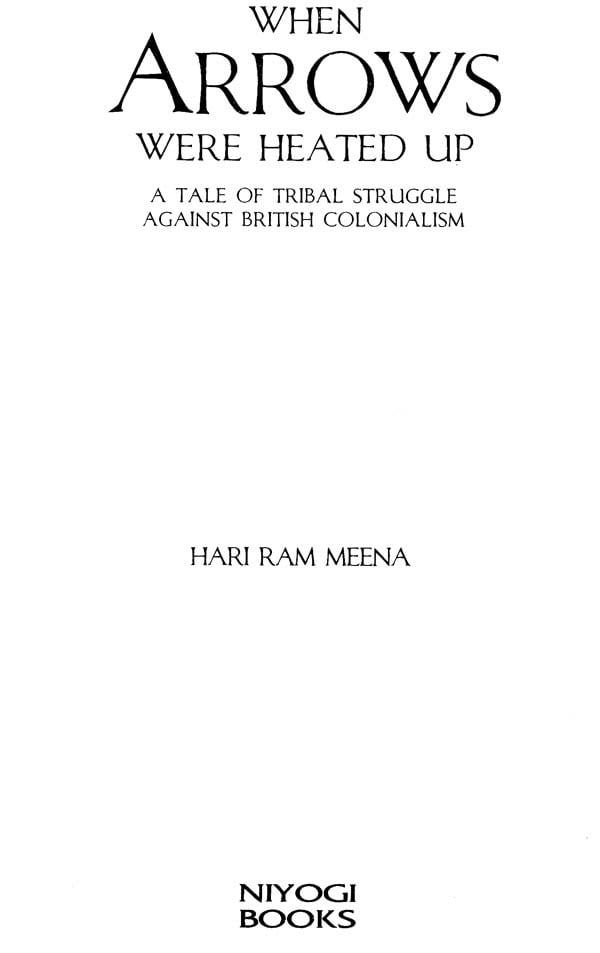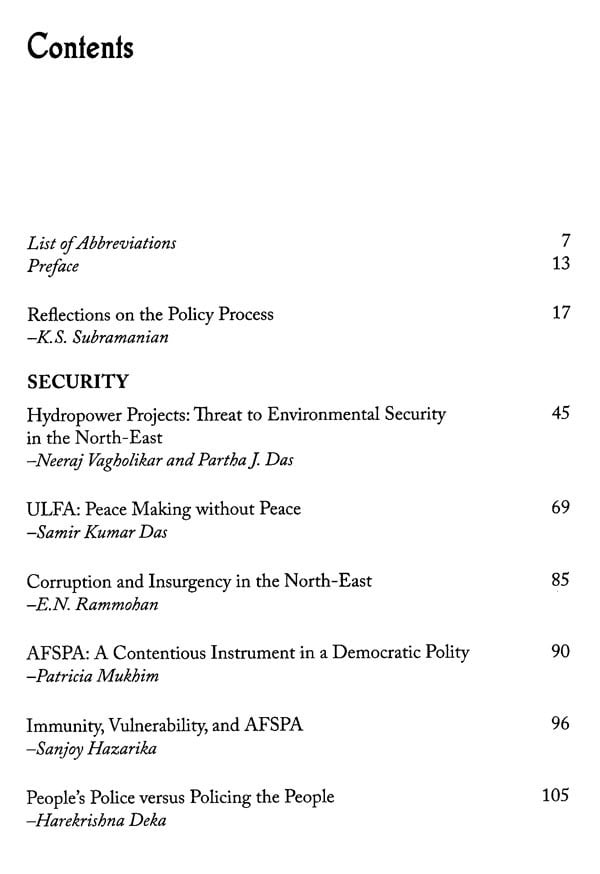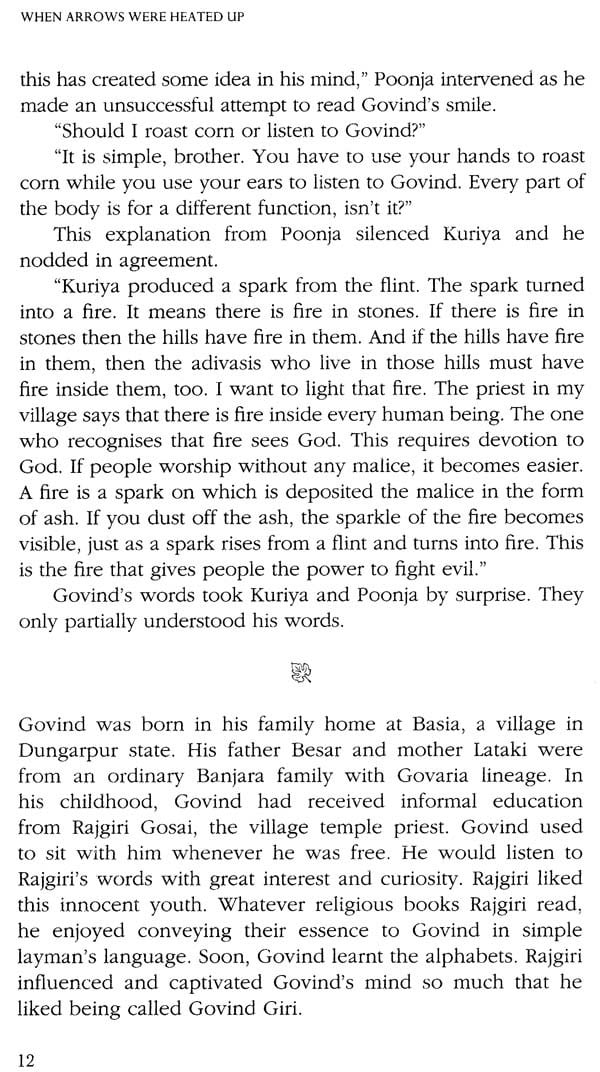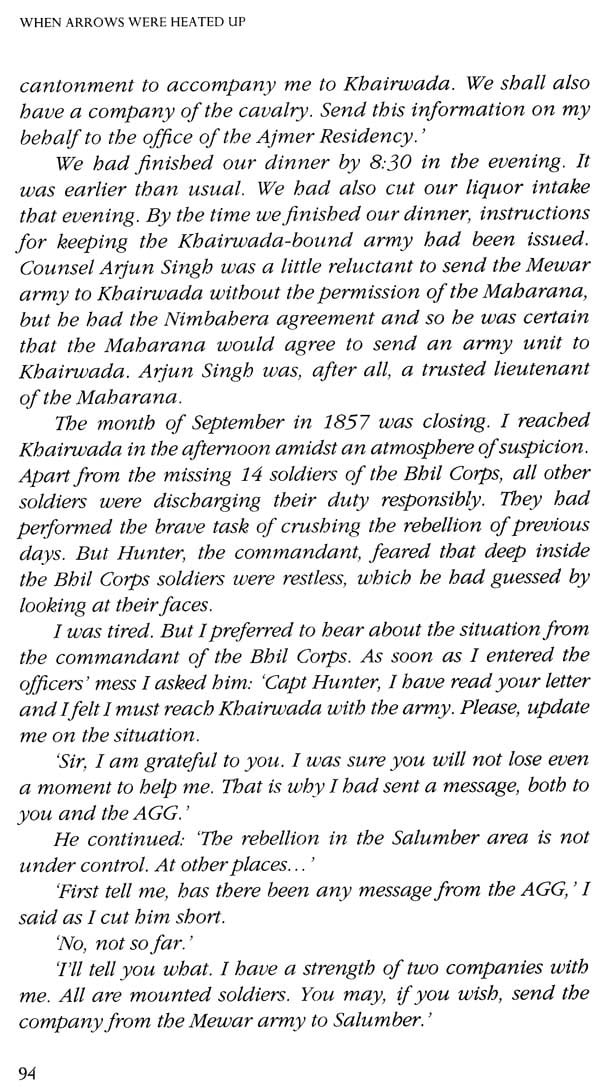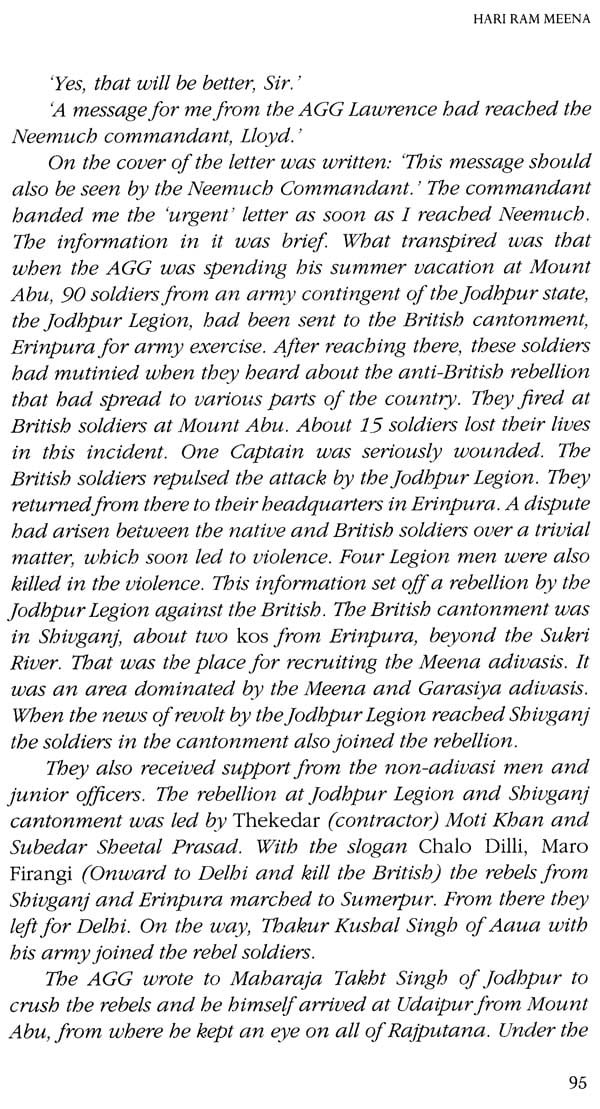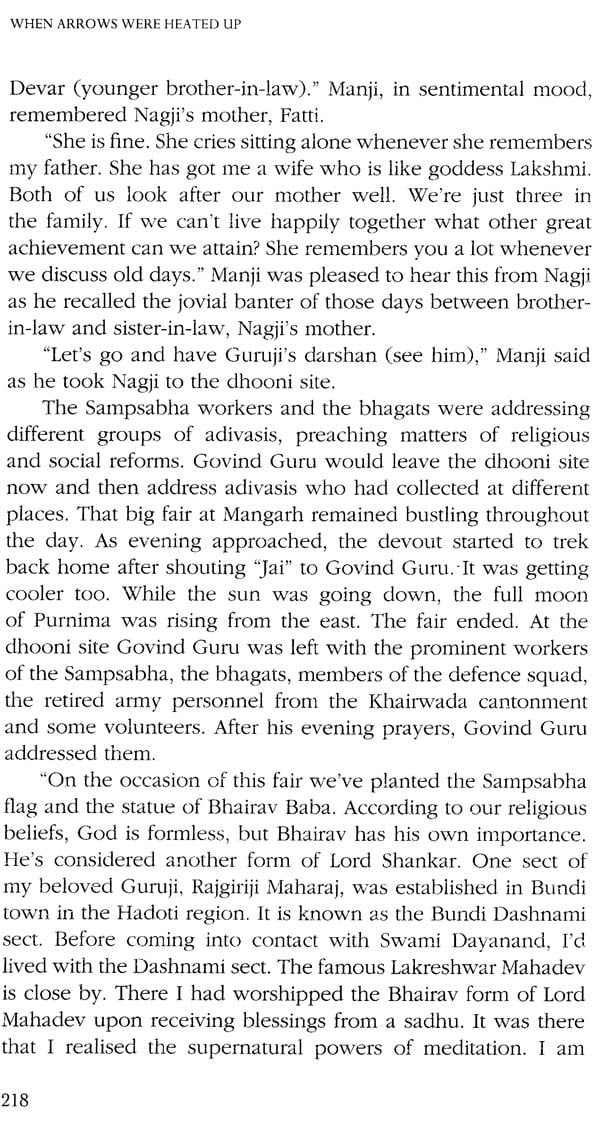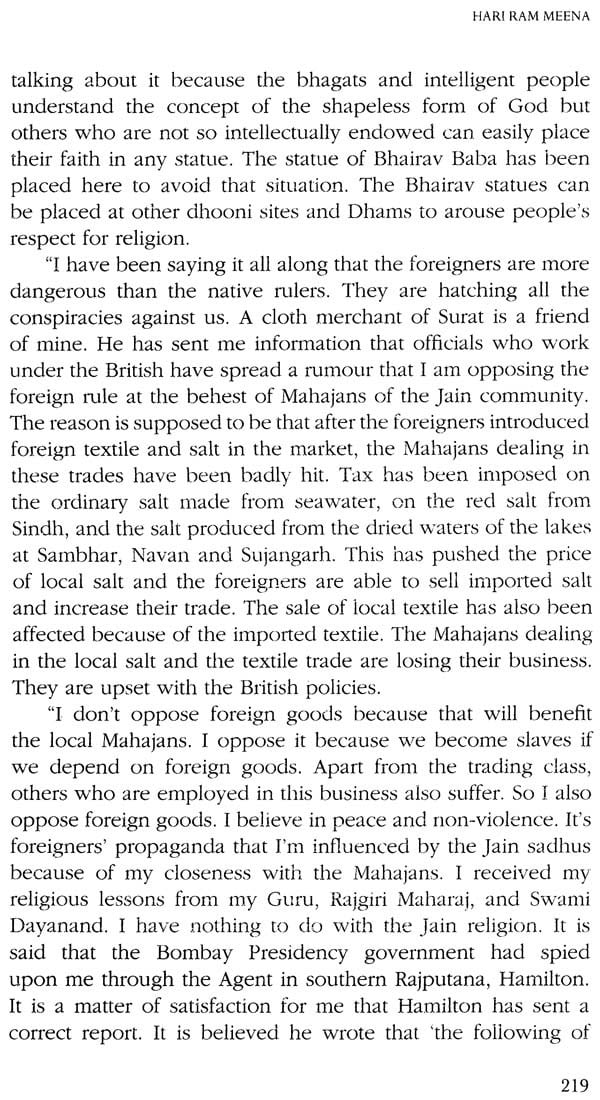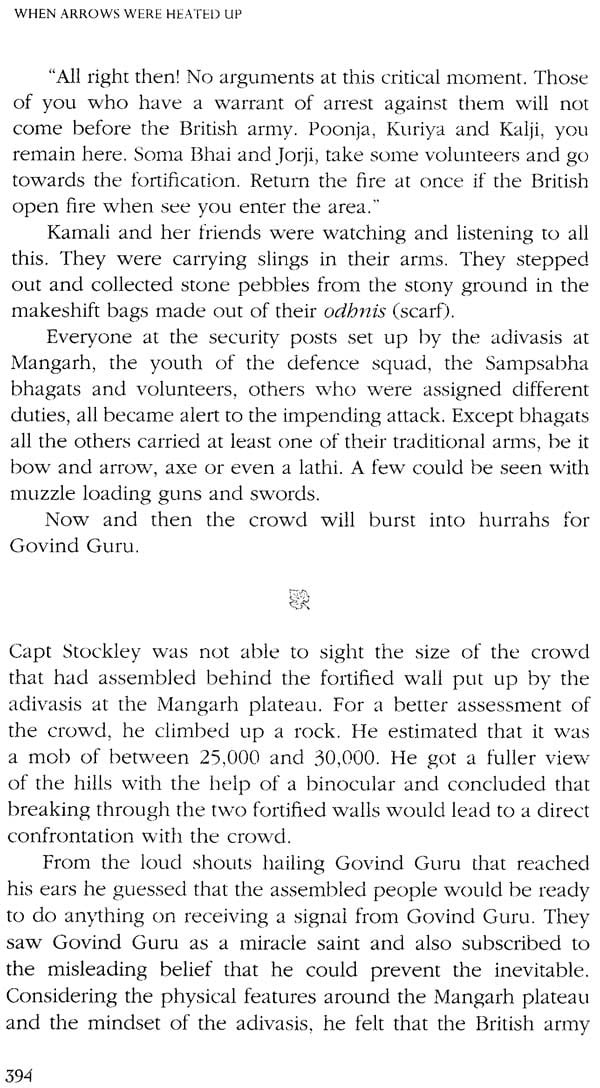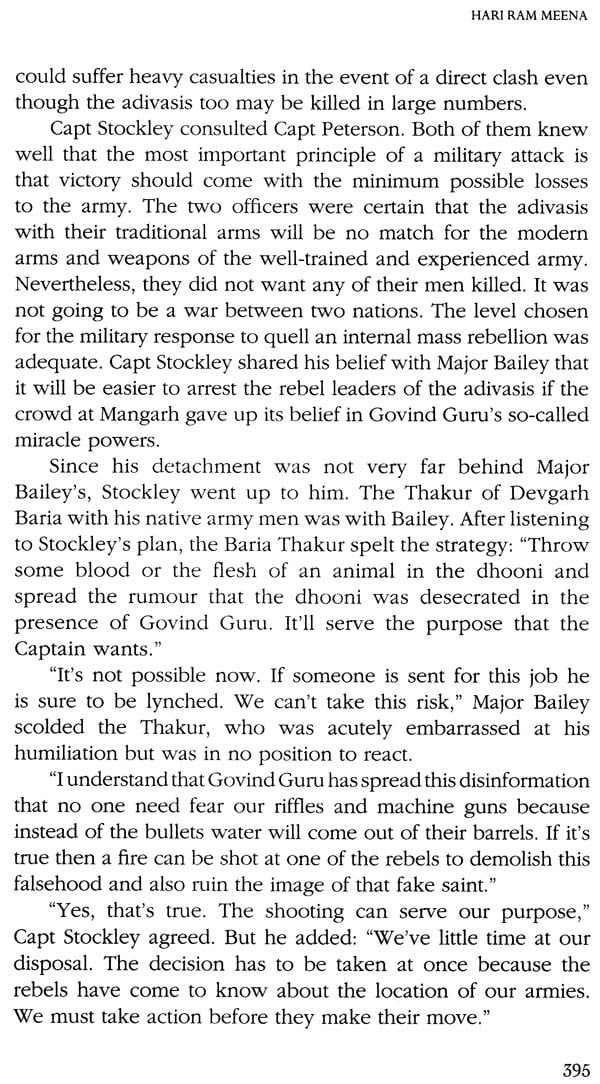
When Arrows Were Heated Up- A Tale of Tribal Struggle Against British Colonialism
Book Specification
| Item Code: | AZE864 |
| Author: | Hari Ram Meena |
| Publisher: | NIYOGI BOOKS |
| Language: | ENGLISH |
| Edition: | 2016 |
| ISBN: | 9789385285226 |
| Pages: | 408 |
| Cover: | PAPERBACK |
| Other Details | 9.00x6.00 inch |
| Weight | 450 gm |
Book Description
Sadly, the heartbreaking story has mostly remained unknown outside Rajasthan. It is one story that needs to be told and retold to generations of Indians. The author's painstaking research and his understanding of local history and culture result in the detailed reconstruction of a tragic, yet glorious, saga that should remain permanently etched on the Indian mind.
So far, he has published eight books, including two collections of poems, two travelogues, a novel and a book on tribal discourse. He has also edited a compilation of tribal poems. His literary works have won him several awards, including Rajasthan Sahitya Academy's highest honour, Meena Award and KK Birla Foundation's Bihari Puraskar for the present novel Dhuni Tape Teer.
Translator Atul Cowshish was a correcspondent of The Statesman, Delhi from 1963-1993. Presently he is a freelance journalist based in New Delhi.
I tried gathering information and details pertaining to the incident. The task was not easy. I had not studied history in a systematic manner, nor had I ever done any scholarly research. But being a police officer I had developed skills for investigation. I started collecting evidence to corroborate the facts of the incident.
Eventually, in 2001, I found time to leave Jaipur for a purposeful visit to Mangarh. By now I had gathered enough material, references and information to put it all down in a book form. Thus, I set out on the course of writing about the Mangarh incident and titled it Mangarh: Adivasi Balidan ke Tehkhane Tak (At the Bottom of Mangarh Adivasi Sacrifice), which was readily accepted by the prestigious Hindi journal Pabal-71 in 2002. It pleased me immensely. Suddenly, the story of Mangarh sacrifice attracted attention and began to be discussed widely. Simultaneously, I read the works of B.D. Sharma, Kumar.
**Contents and Sample Pages**
